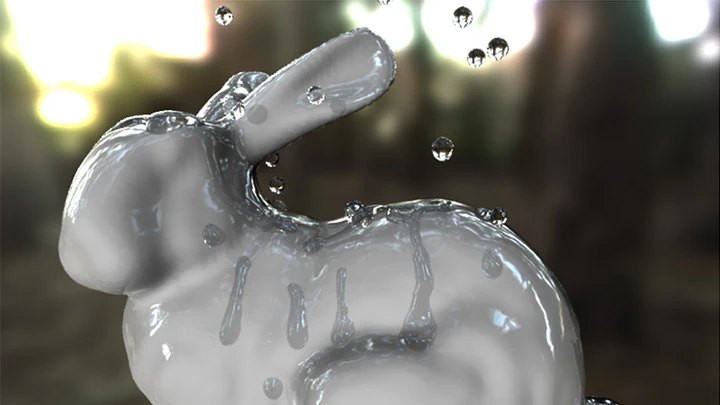Practical Water Animation using Physics and Image Based Methods

Abstract
Generating natural phenomena in a virtual world has a number of practical applications. Thanks to the rich and complicated details in the real world, the goal of realistically and efficiently reproducing natural phenomena is well known as an open problem for graphics researchers. In this dissertation, three different issues in modeling liquid animations have been addressed. First, a virtual surface method is proposed to account for surface tension effects and their interactions with solid surfaces in physically based fluid simulation. This allows us to generate various surface tension behaviors in small scale liquid. The second issue that is addressed is how to make small scale fluid simulation more efficient. The proposed solution is a general shallow wave equation model, extended from the original shallow wave equations. By simplifying 3D incompressible fluid dynamics into 2D, small scale liquid can be stably and efficiently simulated over arbitrarily curved surfaces using implicit numerical schemes. The third contribution is a novel hybrid framework that combines image based reconstruction techniques with physically based fluid simulation. While image based methods cannot correctly generate fluid animations alone frame by frame, physics is used as a refinement tool to enforce physical soundness by propagating shape information back and forth in space and time. In this way, water animations can be realistically and faithfully generated from images without error accumulation or stability issues.
Type
Publication
Georgia Institute of Technology - Theses and Dissertations